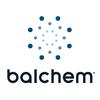Two-pronged approach to reducing calf mortality
Published: November 20, 2009
Source : Andrieu Sylvie
Two factors are key to determining a calf's health and survival during the first weeks of life - its immune system and its gut microflora. Research has shown that feeding Alltech's Bio-Mos to the calf's mother will support the development of the calf's immune system through improved colostrum quality. Feeding Bio-Mos to the calf itself will help directly to protect the intestine from scour-causing pathogens, which is highly effective in limiting diarrhoea and any resulting calf mortalities.
Calf immunity
A calf is born with a naïve immune system and for the first three weeks of life the calf relies on the antibodies provided by dam's colostrum to help protect it against disease.
Health, performance and survival of calves, particularly during these first three weeks of life, rely on the amount and the quality of the colostrum. It is important the newborn calf has sufficient intake of immunoglobulins (IgG).
As far as quantity goes, a good rule of the thumb is to provide between 10 and 12% of the calf's live weight of colostrum during the first 24 hours. That's 1.5litres of colostrum during the first two hours of life. The quality of this colostrum is crucial. In the first 24h a calf should receive 4 litres of colostrum with more than 50g/liter of IgG. A US survey of heifer calves from 1,811 herds found that 40% had less than optimal concentrations of IgG. This highlighted the need to look at strategies to increase immunoglobulin concentration in colostrum. A trial at by Dr. Sharon Franklin (Kentucky University), studied the impact of feeding dry cows during the close up period with Bio-Mos. The experiment investigated the effects of Bio-Mos on the transfer of IgG and vaccine titres to calf serum. Bio-Mos was fed at a rate of 10g/head/day during the three weeks prior to calving and cows were also vaccinated against rotavirus two weeks pre-calving.
The addition of Bio-Mos resulted in a significantly better protection of the newborn calf. Immunoglobulin the serum of calves 24h after calving where significantly higher when Bio-Mos was fed to the cow (1902mg/dL vs. 1718 mg/dL, respectively). In addition, feeding Bio-Mos resulted in significantly higher serum rotavirus titres in cows at calving (2,344 and 2,818 for the control and Bio-Mos fed cows respectively), numerically higher titres in colostrum (21,777 and 26,009 for control and Bio-Mos fed cows respectively) and a tendency for greater serum rotavirus titres in calves (4,677 and 7,244 for control and Bio-Mos fed cows respectively).
The study revealed that improved intestinal protection against rotavirus in calves could be achieved due to potential for transfer of rotavirus antibodies from the bloodstream into the intestine. And elevated rotavirus titres in colostrum will provide newborn calves with enhanced protection against rotavirus, resulting in fewer cases of diarrhoea compared to calves from cows that are not immunised against rotavirus.
As well as reducing the incidence of scours, feeding Bio-Mos to dry cows will also go some way to reducing calf mortality. US studies revealed that the average calf mortality rate is 8.3%. About 27% of these deaths occur during the first week of life, 21% during the second and 14% during the third week. This means that more than 50% of calf deaths occur during the first three weeks of age.
Around 61% of deaths are the result of diarrhoea, while 24% are due to respiratory diseases and 14% due to other causes.
These figures emphasise the need to improve immune status and also calf gut health
Gut health
Healthy and stable gut microflora is also crucial for calf health and to help prevent diarrhoea. At birth the intestine of a calf is still sterile and the colonisation process takes place right after birth when the calf is exposed to bacteria. The first colonisers come from the birth canal, the faeces of the cow and the environment of the calving pen.
Apart from the lactobacilli, they often include potential pathogens, such as E. coli, Clostrida and Salmonella, which can lead to post-weaning diarrhoea, loss in growth performance and even death.
Any change in diet or management can disrupt the intestinal microflora profile and this can allow pathogenic bacteria to multiply.
During the past decade, Bio-Mos has been shown to inhibit pathogen colonisation in the intestine.
It works by preventing pathogens from attaching to the gut wall. Instead, pathogens link themselves to Bio-Mos, which acts as a 'decoy' in the calf's intestine. Inhibited in this way the pathogens are unable to colonise and cause damage to the intestinal surface. Intact villi structure and an intact gastrointestinal surface is key to nutrient absorption.
It has been shown that Bio-Mos lowers the incidence of scours in calves. In a trial carried out at Pennsylvania State University, Bio-Mos fed calves had a similar scouring score when compared to antibiotics treated calves, while the non-antibiotic treated calves suffered from more severe diarrhoea.
The effect of Bio-Mos on intestinal health results in higher growth rates. And in a recent analysis incorporating 16 calf trials scientists discovered that Bio-Mos supplementation in calves, at a rate of 4g/head/day, resulted in a 15% increase in live-weight gain, an increase in ADG of 70g/day, and an increased starter feed intake of 9.8% when compared to non-supplemented calves.
An interesting point is the repeatability of the response as live-weight gain and ADG effect were observed in fifteen out of sixteen trials, while the effect on starter feed intake was observed in eight out of eight trials.
So, adopting a two-pronged approach to calf health and feeding Bio-Mos to dry cows and, later, to calves should help to preventing calf scours and any resulting calf mortalities, as well as ensuring good calf growth rates and reducing the costs associated with calf disease.
Related topics:
Recommend
Comment
Share

Would you like to discuss another topic? Create a new post to engage with experts in the community.









